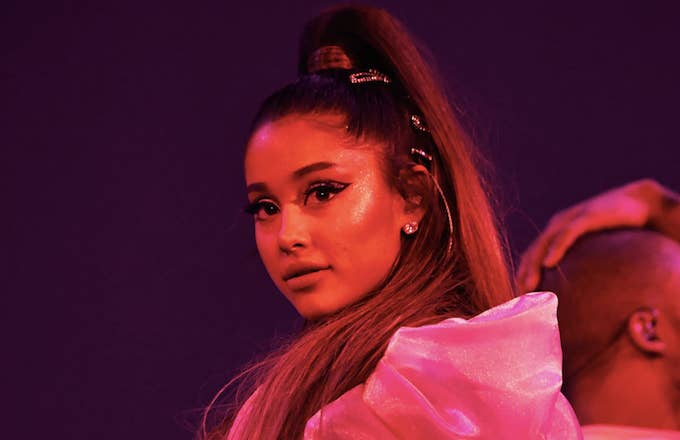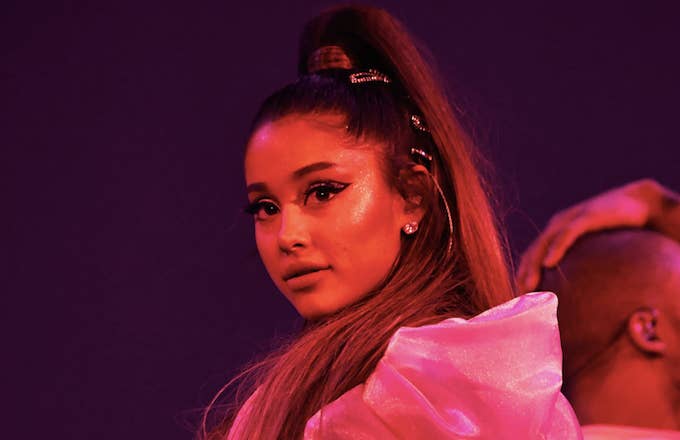
Ariana Grande's "7 Rings" is a massive and lucrative hit—especially for legendary composers Rodgers & Hammerstein.
Since its release on Jan. 18, the record-breaking single has garnered more than a billion streams and has topped the Hot 100 chart for six nonconsecutive weeks. Though there was some controversy about the inspiration behind "7 Rings"—as a number of artists accused Grande of stealing their respective styles—there was one reference that couldn't be denied: The hook was an obvious sample of 1959's "My Favorite Things," a song written by Richard Rodgers and Oscar Hammerstein II for The Sound of Music.
According to the New York Times, Rodgers and Hammerstein are two of the 10 listed songwriters for "7 Rings," but control 90 percent of the royalties. Concord, the music company that has owned the duo's catalog over the last couple of years, reportedly secured the percentage just weeks before the song was released.
"['7 Rings'] wouldn’t exist in its current form were it not for 'My Favorite Things,'" Jake Wisely, Concord's chief publishing executive, told the Times.
Concord's large cut means it could potentially make millions of dollars off the song. Grande and the other seven co-writers will make a fraction of the remaining 10 percent. It's important to note, however, that Grande is expected still make bank because the songwriting royalties are separate from what she will earn as the recording artists.
In 2006, Gwen Stefani sampled The Sound of Music's "Lonely Goatherd" for "Wind It Up." As part of that deal, Rodgers and Hammerstein —who died in 1979 and 1960, respectively—received 50 percent of the royalties. Copyright attorney Lisa Alter suspects that the cut is likely based off of the popularity of the original song.
"It probably implies that more of the song is being used," Alter said, "or how iconic the original song is."

